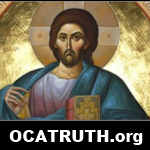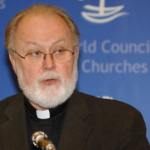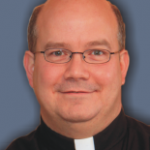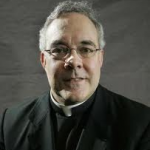
Deprecated: trim(): Passing null to parameter #1 ($string) of type string is deprecated in /home/aoiusa/public_html/wp-content/plugins/sexybookmarks/public.php on line 388
Deprecated: trim(): Passing null to parameter #1 ($string) of type string is deprecated in /home/aoiusa/public_html/wp-content/plugins/sexybookmarks/public.php on line 394
Deprecated: trim(): Passing null to parameter #1 ($string) of type string is deprecated in /home/aoiusa/public_html/wp-content/plugins/sexybookmarks/public.php on line 400
Chris Banescu corrects some bad math and sloppy assertions.

Source: A Voice in the Wilderness | Chris Banescu
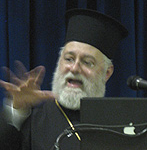 Bishop Savas (Zembillas), GOA’s Director of the Office of Church and Society, has launched into yet another missive against conservatives whom he frequently condemns of hating the poor and only protecting the rich. On his facebook page, the main venue where one can find the bishop’s real views and interests, he recently posted a blame Republicans editorial from The New York Times titled “The New Resentment of the Poor.” Apparently forgetting that envy is a sin and truth-telling a virtue, Bishop Savas highlights his class-warfare passions in several false claims he posted in the discussions related to the NYT article.
Bishop Savas (Zembillas), GOA’s Director of the Office of Church and Society, has launched into yet another missive against conservatives whom he frequently condemns of hating the poor and only protecting the rich. On his facebook page, the main venue where one can find the bishop’s real views and interests, he recently posted a blame Republicans editorial from The New York Times titled “The New Resentment of the Poor.” Apparently forgetting that envy is a sin and truth-telling a virtue, Bishop Savas highlights his class-warfare passions in several false claims he posted in the discussions related to the NYT article.
This is not the first time Bishop Savas has posted such biased hit pieces on his Facebook wall. He has a long history of supporting pro-Democrat and anti-Republican views via his many postings of overwhelmingly liberal and leftist-leaning commentary from NPR and The New York Times, his favorite sources of “balanced and objective” news and views. However, this latest editorial further showcases his superficial and misinformed thinking on taxation via several outlandish statements that distort the truth and advance a leftist/progressive agenda.
Falsehood #1 – Employee Social Security and Medicare Tax Rates
In the comments section below The New York Times editorial link, Bishop Savas makes this claim (emphasis mine):
“even those who don’t pay federal income tax pay 16% of their total income on taxes. A person making $30,000 pays around $5,000.”
What he calls “total income on taxes” are the combined Social Security and Medicare taxes that individuals must pay to the federal government (in addition to federal and state income taxes). These are taxes that are automatically deducted by employers from their employees’ payroll checks. Based on the numbers he cited, employed individuals would pay a 16.7% ($5,000 divided by $30,000) combined Social Security and Medicare tax rate on income. Unfortunately, the bishop’s assertion is wildly inaccurate. He’s not just wrong by a few percentage points, but off by more than 100%.
According to federal government guidelines, by law employees are required to pay a 6.2% Social Security tax and a 1.45% Medicare tax on their earnings. This means that employed individuals must pay a combined SS/Medicare tax of 7.65% on their income. The employer must also match those taxes and pay an additional 7.65% of the employee’s salary directly to the federal government. Those additional taxes are paid by the employer only and are not deducted from the employee’s earnings.
Relying on some simple web research and basic math, we arrive at $2,295 per year of Social Security and Medicare taxes that employees earning $30,000 per year actually pay (nowhere near the $5,000 alleged). The matching $2,295 in SS/Medicare taxes are paid solely by an employer from his own earnings, not the employee’s pocket. This means that Bishop Savas’ erroneous example exaggerates these taxes by nearly 218%, asserting a fictional 16.7% vs. an actual 7.65% tax rate; a percentage two times bigger than reality.
Falsehood #2 – Viacom CEO Salary for 2010
The second falsehood from Bishop Savas, in the same facebook section, focuses on the 2010 salary of Viacom’s CEO (emphasis mine):
“The CEO of Viacom made $754,000,000 last year – around $2,000,000 a day, give or take. What percentage do you think he owes in taxes?
Such an enormous salary, nearly 3/4 of a billion dollars, for just one year’s worth of work is indeed shocking. The problem is that it’s not true. The assertion is meant to scandalize the reader and justify resentment of the other. It’s an audacious condemnation in support of the same liberal/leftist bias seen in the NYT article posted on his facebook wall. Bishop Savas is shamelessly distorting the facts.
A quick search on Google reveals the truth regarding the actual compensation that Mr. Phillippe Dauman, the CEO of Viacom, was awarded last year. As reported by the Los Angeles Times:
“Viacom Inc. Chief Executive Philippe Dauman was awarded salary, stock and other benefits totaling $84.5 million during the nine months of 2010 that were covered in Viacom’s fiscal year.
That amount included one-time stock award worth $31.65 million — money that was not paid to Dauman in 2010 but will vest over the next five years if the company achieves certain performance goals. The grant was bestowed on Dauman as a signing bonus in April after he extended his employment contract six and a half years.”
Notice immediately that the 2010 “awarded salary, stock and other benefits” is orders of magnitude smaller than the bishop’s imaginary amount. It is only $84.5 million vs. $754 million. Notice also, that a large portion of that salary, $31.65 million in fact, is deemed as “one-time stock award”; it hasn’t been paid to Mr. Dauman yet. That amount will vest over the next five years if the company meets very specific performance guidelines. He will only receive that compensation in the future if he fulfills the goals identified in his 5-year contract with Viacom.
The money Mr. Dauman was actually paid in 2010 is probably closer to $52.85 million. That’s indeed a nice chunk of change. But, it’s a whopping 1,427% smaller than what Bishops Savas said it was. That’s quite a discrepancy! Yes, we’re still talking about large amounts of money, but why the need for such ludicrous embellishment?
Even assuming a very superficial reading of the LA Times piece and using the $84.5 million compensation number, still leaves us with a 892% exaggeration of the facts. Is the desire to justify a viewpoint and promote an agenda so powerful that accuracy and truth no longer matter?
Falsehood #3 – Total Income Tax Rates on the Rich
Bishop Savas also erroneously assumes that someone earning $754 million per year would only pay $250 million in taxes:
“The CEO of Viacom made $754,000,000 last year – around $2,000,000 a day, give or take. What percentage do you think he owes in taxes? Say, for the sake of argument, he pays back $250,000,000. That would leave him with only a little more than half a billion dollars. Who would have made the greater sacrifice, him or the guy who paid $5,000 out of his $30k? Who is likely to have felt it more?”
Using his numbers gives the impression that a rich CEO pays only 33.1% in income taxes, allowing him to keep 66.9% of what he earned. This is also not true.
First of all, the marginal Federal Income Tax rate is currently 35% for anyone earning more than $379,150 per year (cut-off was $373,650 in 2010). Right away, the bishop’s math is off by almost 2%. [NOTE – the federal tax rates are less for the first $379,150 earned, but for practical purposes when dealing with millions in income the effective rate approaches 35%.]
Second of all, Bishop Savas conveniently leaves out an additional 1.45% Medicare tax that the federal government imposes on all income earned. This raises the federal tax to 36.45%. And we’re not done yet. State incomes taxes must also be paid.
Assuming that Mr. Phillippe Dauman is a resident of New York (a fair assumption since the corporate headquarters of Viacom Inc. are in New York City), he must also pay state and local income taxes due each year. A brief overview of New York’s state tax laws by the nonpartisan Tax Foundation reveals a tax rate of 8.97% on all income over $500K per year. We’ll round that out to 8.9% for simplicity and to account for the slightly smaller tax rates bellow the half million dollar mark.
Adding the 8.9% NY state tax rate to the 36.45% Federal tax rate brings the Total Tax Rate to 45.35%, roughly 37% larger than Bishop Savas asserts. Had Mr. Dauman actually earned $754 million for 2010, the IRS and New York State authorities would have appropriated about $342 million of that money (almost half), not $250 million (only a third) as claimed.
The reality is that New York taxpayers in the highest income brackets keep just 54.65% of what they actually earn each year. This is significantly less than the fictional 66.9% asserted by Bishop Savas. Nearly half of what the rich earn is confiscated and redistributed by the government. What’s wrong with sticking with the facts?
Better Silence Than Foolishness
As Abraham Lincoln once observed, it is often “better to remain silent and be thought a fool than to open one’s mouth and remove all doubt.” A little moderation would be wise before stepping into the public arena and proclaiming such whoppers. This is especially egregious given that the truth is just a few keystrokes away, discoverable via a few Google searches and some basic math.
It’s been said that economists should not do religion. Maybe religious figures should not do economics.

